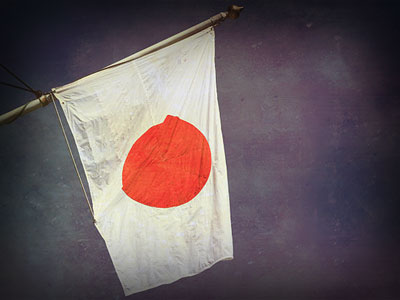Japan's New Security Role in Asia
As Tokyo shows signs of flexing muscle in East Asia, neighboring countries are reacting.
 As Japan shows increasing signs of playing a more vigorous political and security role in East Asia, neighboring countries are exhibiting a range of reactions. Predictably, North Korea’s response to any manifestation of a stronger Japan is a caricature of saber-rattling paranoia. China and South Korea have responded with a mixture of nervousness and hostility, as Jeffrey W. Hornung of the Asia-Pacific Center for Security Studies ably documented recently in The National Interest. But the reaction has been surprisingly favorable in other countries.
As Japan shows increasing signs of playing a more vigorous political and security role in East Asia, neighboring countries are exhibiting a range of reactions. Predictably, North Korea’s response to any manifestation of a stronger Japan is a caricature of saber-rattling paranoia. China and South Korea have responded with a mixture of nervousness and hostility, as Jeffrey W. Hornung of the Asia-Pacific Center for Security Studies ably documented recently in The National Interest. But the reaction has been surprisingly favorable in other countries.
South Korea’s wariness reflects primarily historical factors, although ongoing bilateral tensions over disputed islands (known as Dokdo in Korea and Takeshima in Japan) also play a role. The emotional wounds from Japan’s exploitive and sometimes brutal colonization of the Korean Peninsula during the first half of the 20th century have been slow to heal. Japanese officials exacerbate Korean suspicions by making clumsy, insensitive statements about that period. The most recent example was Osaka mayor Toru Hashimoto’s comment that World War II “comfort women” (young women pressed into sexual slavery by the Japanese military) had been necessary to maintain discipline.
Historical factors also play a role in China’s stance toward Japan. Chinese officials and journalists never miss an opportunity to remind listeners about Japan’s egregious behavior in their country during the 1930s and early 1940s.
But for China, current geopolitical rivalries are a larger, more important motive. Indications that Tokyo might end its self-imposed limit of spending no more than 1 percent of the country’s annual gross domestic product on the military provoke strongly negative reactions in Beijing.
The same is true of suggestions that Prime Minister Shinzo Abe’s government might seek to modify article 9 of Japan’s post-World War II constitution, which places severe restrictions on the country’s use of military force. “Given the Japanese government’s refusal to apologize for Japan’s aggression during World War II, any revision of Japan’s constitution,” an editorial in China Daily warned, would be “a cause for concern in the rest of the world.” Tokyo’s surprisingly uncompromising stance over the past year regarding the disputed Diaoyu/Senkaku islands in the East China Sea has produced shrill accusations of renewed Japanese imperialism in the Chinese media.
But the reaction elsewhere in East Asia to Tokyo’s more assertive behavior in the political and security realms has been markedly different from the response in the two Koreas and China. Less than two decades ago, such countries as the Philippines, Australia and Singapore were adamantly opposed to a more robust Japanese military and the expansion of Tokyo’s security role beyond homeland defense. East Asian leaders also were emphatic that the United States needed to exercise a strong supervisory function regarding Japan’s military activities. Singapore’s long-time leader, Lee Kuan Yew, was the most outspoken in warning about the danger of revived Japanese militarism, but he implicitly spoke for many of his colleagues in the region.
And Washington’s stance was scarcely more trusting. In the early 1990s, General Henry Stackpole, the commander of U.S. Marine forces on Okinawa, famously stated in an interview that the U.S. military presence was “the cap in the bottle” that reassured the region against any prospect of a new Japanese imperialism.
China’s rise has changed the strategic calculations, both in Washington and in many East Asian capitals. During George W. Bush’s administration, U.S. officials worked tirelessly to strengthen the alliance with Japan and to get Japanese leaders to view the alliance as a vehicle to address other security contingencies in the region, not confine it to Japan’s territorial defense. That deepening strategic partnership has continued during the Obama years.
Several East Asian nations now seem to view Japan as an important strategic counterweight to China. When asked how his government would view a rearmed, non-pacifist Japan, Philippines Foreign Minister Albert del Rosario told the Financial Times “We would welcome that very much.” He added, “We are looking for balancing factors in the region, and Japan could be a significant balancing factor.” And such opinions are being put into action. In January 2013, Tokyo and Manila agreed to enhance their cooperation on maritime security. Ties are also growing between Japan and Singapore, as well as between Japan and Australia on such matters. Worries about the need to balance China’s growing power is evident as well in the recent summit between Prime Minister Abe and Indian Prime Minister Manmohan Singh, in which cooperation even on the highly sensitive issue of nuclear technology was high on the agenda.
Acceptance of Japan playing a political-military role commensurate with its status as the world’s third largest economic power may be slow to develop in China and the Koreas, but it is already happening elsewhere in East Asia. Rommel Banaoi of the Institute for Peace, Violence and Terrorism Research, based in Manila, succinctly captured that new perspective: “We have already put aside our nightmares of World War II because of the threat posed by China.” The principal remaining question is how effectively Tokyo will respond to that new opportunity.
Ted Galen Carpenter, a senior fellow at the Cato Institute, is the author of nine books and more than 500 articles and published policy studies on international affairs. He is a contributing editor to The National Interest.
